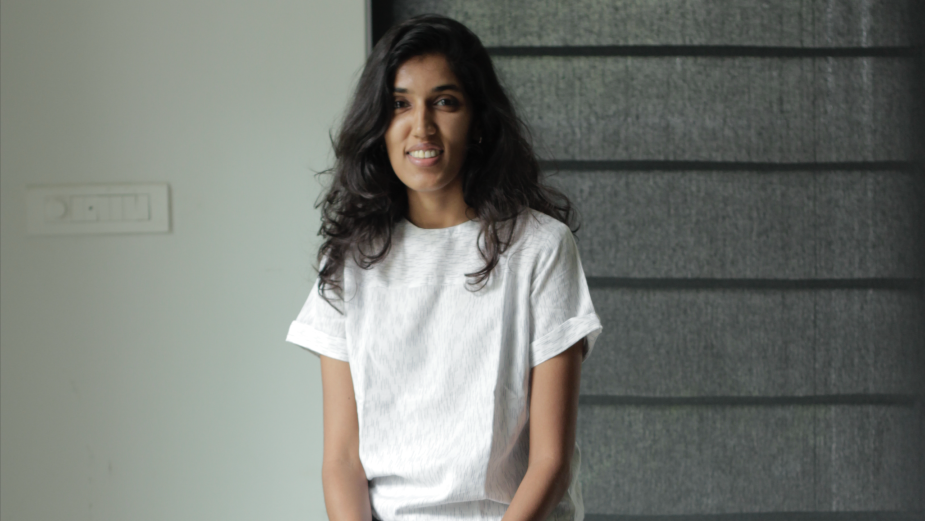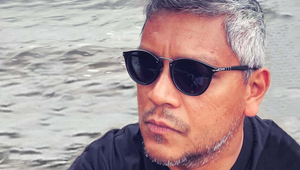
The Directors: Sharanya Ramesh

After graduating with a bachelor's degree in Mass Communication, director Sharanya Ramesh spent two years trying to make corporate films — that she started her own hand painted t-shirt company right after tells you just how much she enjoyed that job.
It was during this semi-sabbatical that Sharanya started her first experiments with stop motion. Bombay kept calling and she decided to take the leap. She then spent almost eight years working in the ad film industry as an assistant director before making her own film.
She is a director, writer and animator who creates audiovisual worlds with materials like clay, paper, cardboard, wood, found objects and, sometimes, humans.
Name: Sharanya Ramesh
Location: Bombay/Bangalore, India
Repped by: Never Ending Story
What elements of a script sets one apart from the other and what sort of scripts get you excited to shoot them?
I think a script that manages to weave a story subtly into the intended communication really connects instantly.
Scripts that allow different visual interpretations really excite me. The possibility that I could approach a script in more ways than just the obvious route makes the execution that much more exciting. Of course, once I pick an approach, I stick with it.
How do you approach creating a treatment for a spot?
Often, there’s already an underlying treatment direction when a script comes from an agency. So my approach is usually to try and take it to that next level, as a fresh pair of eyes that’s getting to see an idea unfold. I usually trust my instinct and the loudest voice in my head, making sure I don’t dilute my idea with any ‘inspirations or references’ at the early stages.
If the script is for a brand that you're not familiar with/ don’t have a big affinity with or a market you're new to, how important is it for you to do research and understand that strategic and contextual side of the ad? If it’s important to you, how do you do it?
Understanding the brand/organisation and their ethos plays a big role in the feel and look I create for a film. And brand strategy surely matters even to the filmmaker, in terms of the target audience and the approach with the script. I think it’s important to understand that the film comes at a stage when a lot of homework has already been done.
For you, what is the most important working relationship for a director to have with another person in making an ad? And why?
I think a stress free, solution oriented approach with the crew works for me.
What type of work are you most passionate about - is there a particular genre or subject matter or style you are most drawn to?
I’m primarily a stop motion animation filmmaker, which in itself is a vast visual style. I learn a new form and style with every project I do. I love that I can bring a little surrealism into any film I make because animation is given that allowance by most audiences.
What misconception about you or your work do you most often encounter and why is it wrong?
The biggest misconception is that stop motion animation is outdated and doesn’t make sense in the world of commercial timelines/deadlines. It’s a unique style that beautifully brings real and surreal worlds together. It is time consuming, yes, but a solid team can pull off some fantastic films in decent timelines, in my opinion.
Have you ever worked with a cost consultant and if so how have your experiences been?
No. Hope I’m not ignorant in saying that, I don’t think a cost consultant has much of a role in the industry I belong to.
What’s the craziest problem you’ve come across in the course of a production – and how did you solve it?
How do you strike the balance between being open/collaborative with the agency and brand client while also protecting the idea?
Sadly, by accepting that compromises are a part of the deal.
Jokes apart, I respect that the idea reaches my stage after much work has been done by many at the agency/client’s end. I may suggest and strongly push for an idea I’m confident in, but the final decision has to be one that respects all involved.
What are your thoughts on opening up the production world to a more diverse pool of talent? Are you open to mentoring and apprenticeships on set?
I’m open to being a mentee and apprentice myself, still. Being a filmmaker in a very niche space like stop motion animation, I can’t wait for the industry to open up production to all kinds of talent and creators.
How do you feel the pandemic is going to influence the way you work into the longer term? Have you picked up new habits that you feel will stick around for a long time?
For a stop motion animator, it’s been good to see more productions working with lean crews. I think they’re yet to see the benefits of working with this style in this new environment but it’s surely been good to see more demand for different content.
Your work is now presented in so many different formats - to what extent do you keep each in mind while you're working (and, equally, to what degree is it possible to do so)?
I think I’m yet to learn how to tailor my work for different formats, honestly. My approach is to still think of my final audience, which tends to be the same regardless of format.
What’s your relationship with new technology and, if at all, how do you incorporate future-facing tech into your work (e.g. virtual production, interactive storytelling, AI/data-driven visuals etc)?
I push myself constantly for fear of going obsolete, with new technology coming in everyday. It’s great to see how stop motion animation today has incorporated so much technology into a style that is assumed to be traditional and only tactile, which has made working so much easier and opened up so many possibilities for storytelling.
Which pieces of work do you feel really show off what you do best – and why?
Thatha's Secret - Short Film
The Nature Series - Experimental
Flippin' Future
Pehlay Akshar










